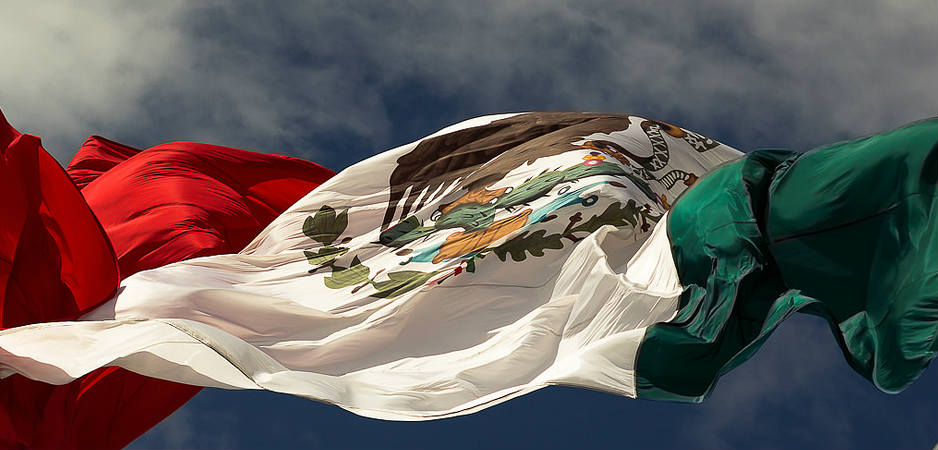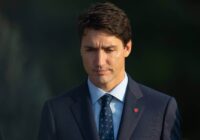It is unlikely Mexico will reach its objectives at the North American Leaders’ Summit on June 29.
In mid-June, Mexican Secretary of Finance Luis Videgaray traveled to Montreal to deliver a speech at the inaugural session of the International Forum of the Americas.
Videgaray affirmed that Mexico remains one of the main proponents of further and deeper North American integration as a source of joint prosperity and security for Mexico, Canada, and the United States. He made explicit Mexico’s interest in working closer together with its partners in the North American Free Trade Agreement (NAFTA) to protect the region’s economically competitive position, amid a global environment characterized by uncertainty and ensuring its continued physical security.
While brief, his main message, aimed at North America’s policymakers, was clear: The bilateral and trilateral economic exchanges and cooperation arrangements between Canada and the US with Mexico on development, health, education and energy matters are vital to their own security and prosperity. In brief, “our North American neighbors need us.”
To get this message across to the American and Canadian governments and publics, Mexico is investing significant political and diplomatic capital. Videgaray’s speech was just one in a series of similar statements made over the past few weeks by a number of politicians: Secretary of Foreign Affairs Claudia Ruiz Massieu; Secretary for Energy Pedro Joaquín Coldwell; Secretary for Social Development José Antonio Meade; and Undersecretary of Health Pablo Kuri.
Their statements are part of Mexico’s deliberate and coordinated effort to push for the advancement of North American regional integration. Such an effort is a key part of the Mexican government’s current economic strategy to promote job creation in the country and the consolidation of Mexico as an exporting nation and emerging power.
Objectives
The objective of these efforts is, presumably, to set the scene for Mexican President Enrique Peña Nieto to introduce ambitious proposals on the future of the regional integration project, in the context of the North American Leaders’ Summit, which is set to take place in Ottawa on June 29.
Specifically, Mexico wants to secure concrete agreements on three issue-areas of strategic importance for the country: regional trade, cooperation for infrastructure development and cross-border mobility. However, there will be a significant gap between Mexico’s ambitious objectives at the summit and the actual results it will likely deliver.
In these areas, Mexico will look for three things.
First, the Mexicans want to secure their privileged position in the NAFTA, in preparation for the eventual ratification of the Trans-Pacific Partnership (TPP). In practice, this will extend the privileges and advantages of NAFTA membership to nine other countries in South America, Asia and Oceania.
Second, Mexico will attempt (once again) to secure a commitment from Canada to create and participate in a North American infrastructure improvement and development fund, modeled along the lines (or built upon) the existing North American Development Bank (NADBank).
It is worth remembering that during the NAFTA negotiations in the early 1990s, Canada refused to participate and jointly fund the work of the NADBank. Mexico will once again try to persuade the Canadians about the need for and the benefits of creating a truly North American development fund.
Third, Mexico will try to settle, once and for all, the diplomatic impasse created by the requirement of visas to Mexican travelers to Canada, which were imposed by the administration of Prime Minister Stephen Harper and that the new government of Justin Trudeau has vowed to eliminate, but has not done so yet.
Complexities
If these are indeed the issues and priorities that will be discussed in the North American Leaders’ Summit, Mexico faces (figuratively) an uphill battle. Given the current political climate in Canada, the US, Mexico and now the rest of the world, this will be one of the most complex, difficult and probably less productive meetings between the three heads of state to have ever taken place since the establishment of these summits in 2005.
Numerous factors account for the complexity of this meeting. One is the ever-closer presidential elections in the United States, characterized by heated debates on domestic economic issues and animosity toward Mexican immigration to the country. Another is the limited bilateral engagement between Mexico and Canada that followed the “visa impasse.” Yet another factor is the recent and long delays and changes in the appointments of a US ambassador to Mexico and a Mexican ambassador to the US.
And, finally, the economic distress and uncertainty that has been created in global markets by Brexit—the United Kingdom’s decision to leave the European Union—which all make it hard to both visualize the construction of a solid trilateral regional project and limit the prospects of reaching such ambitious accords in the short or medium terms.
The North American integration project, which appears to be in a permanent state of crisis and self-doubt about its existence, faces an even more difficult moment. The North American Leaders’ Summit might be the start of a renewed effort of the continued decline of regional integration in North America.
Mexico might be, metaphorically, very keen to reach the summit, but its companions seem to be more interested in just staying at base camp.
The views expressed in this article are the author’s own and do not necessarily reflect Fair Observer’s editorial policy.
Photo Credit: Iivangm / Flickr
 We bring you perspectives from around the world. Help us to inform and educate. Your donation is tax-deductible. Join over 400 people to become a donor or you could choose to be a sponsor.
We bring you perspectives from around the world. Help us to inform and educate. Your donation is tax-deductible. Join over 400 people to become a donor or you could choose to be a sponsor.
Support Fair Observer
We rely on your support for our independence, diversity and quality.
For more than 10 years, Fair Observer has been free, fair and independent. No billionaire owns us, no advertisers control us. We are a reader-supported nonprofit. Unlike many other publications, we keep our content free for readers regardless of where they live or whether they can afford to pay. We have no paywalls and no ads.
In the post-truth era of fake news, echo chambers and filter bubbles, we publish a plurality of perspectives from around the world. Anyone can publish with us, but everyone goes through a rigorous editorial process. So, you get fact-checked, well-reasoned content instead of noise.
We publish 2,500+ voices from 90+ countries. We also conduct education and training programs
on subjects ranging from digital media and journalism to writing and critical thinking. This
doesn’t come cheap. Servers, editors, trainers and web developers cost
money.
Please consider supporting us on a regular basis as a recurring donor or a
sustaining member.
Will you support FO’s journalism?
We rely on your support for our independence, diversity and quality.






